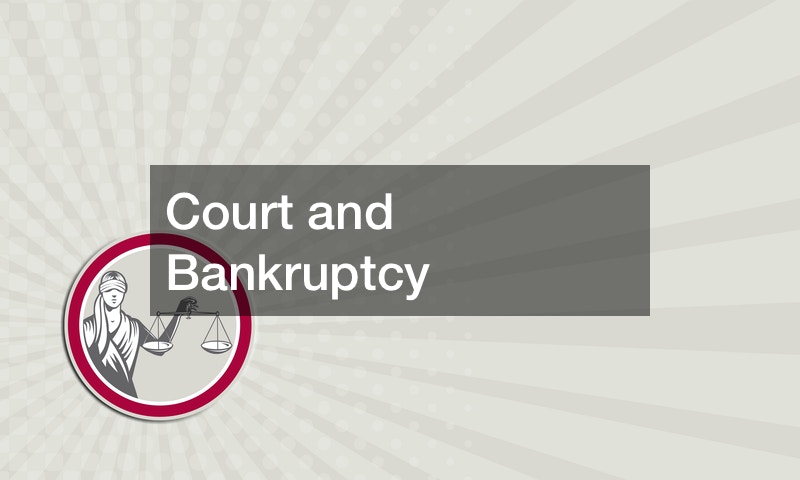
Updated 7/20/22
Bankruptcy firms are used to looking at a wide range of bankruptcy cases. They can check bankruptcy filings and may also offer their potential clients free consultation appointments. If you’re a debtor in bankruptcy case, it’s important for you to avoid having to absorb new expenses when you’re trying to start fresh.
However, being able to successfully declare bankruptcy without a lawyer is very risky. It’s something that some people will try to do, but they will potentially end up in a situation where the case is not going to be resolved in a way that will ultimately benefit them. People will be limited in terms of the number of times that they will be able to file for bankruptcy, which will make it even more important for them to make sure that an individual case goes well. People should try to find a way to get the support and the representation that they need at such a crucial time for them.
These attorneys will sometimes make it even easier for people to be able to resolve these cases without new expenses. Some attorneys will represent their clients in a way that won’t force them to take new risks. They can offer an explanation of bankruptcy.
No one looks forward to the prospect of bankruptcy, but even if it happens, there are options that a debtor can pursue to find debt relief. Bankruptcy law exists to ensure that the proceedings at a bankruptcy court are fair and productive, and bankruptcy law can be used by both sides to this end. Bankruptcy is the case when a debtor such as a small company or a wealthy individual cannot pay their debts off with their current state of affairs. When this happens, bankruptcy filing is sure to follow, and arbitration services may also be called in to make the proceedings smooth, fair, and productive. When it comes time to use bankruptcy law, a debtor company may find itself downsized and restructured to pay off debt, or maybe liquidated entirely. Different cases will have different outcomes, and nothing is being guaranteed here. All the same, bankruptcy law may do a lot of good to help a debtor clear its money troubles. Why do debtors go broke like this? How can bankruptcy law help out in court?
Debtors and Bankruptcy Causes
Bankruptcy may take a number of forms, and chapter 11 is a fairly common method bankruptcy filing in the United States today. A few of those who declare chapter 11 bankruptcy are wealthy individuals, but more commonly, it is small companies who file for this sort of bankruptcy. Often, they do so on their own initiative rather than having it forced upon them by their creditors, since debt relief is something to be desired. In general, chapter 11 bankruptcy debtors are smaller companies with under $10 million in assets and liabilities, under $10 million in annual revenue, and fewer than 50 employees.
A company may find itself bankrupt through typical features of the free market, such as being outclassed by competitors or poor management or marketing technique. Other times, however, these debtors are the victims of crime. Cyber-crime has risen alongside the Internet, and powerful tools such as the Internet are often exploited for crime. What does this mean? Many companies, big and small, store sensitive information such as financial reports, future plans, employee information, and bank account numbers and passwords on data servers, hard drives, and Cloud storage services. IT professionals work hard to keep this data secure, but from time to time, there will be breach and a loss of security and money alike. Large hacker jobs can steal many millions from companies or their customers, which can hurt larger companies and completely ruin smaller ones. A successful hacker attack can drive a company to bankruptcy, and the affected company may file for chapter 11 bankruptcy to seek relief.
Court and Bankruptcy
Filing for chapter 11 bankruptcy means that the debtor company, and any and all creditors, will be present in case, along with their lawyers and the judge. All involved parties will have different roles in finding a solution to the outstanding debt problem, and this may go more smoothly if the debtor has acted in good faith and honesty so far. Such a debtor may be considered DIP, or “debtor in possession.” This means that the debtor may continue to run its business and stay open, but there are conditions. The debtor may not, without the court or debtor’s permission, take on new loans, hire lawyers, or buy or sell anything outside whatever is normally bought or sold for business purposes. Violating these terms or other deceitful acts may cause the DIP status to be revoked.
Either way, the debtor will be asked to formulate a reorganization plan, which is exactly that: a detailed plan for restructuring the company and downsizing it or liquidating assets to help pay off the debts. The debtor will often be given several months to create this plan, and may ask for and even receive a time extension. The debtor company may make use of bankruptcy lawyers to make this plan more effective, and later, the plan will be presented. If the court and creditors accept it, the plan will be put into motion so that part or all of the debt is paid off. And in rare cases, the creditors or court may reject the plan and offer one of their own.

